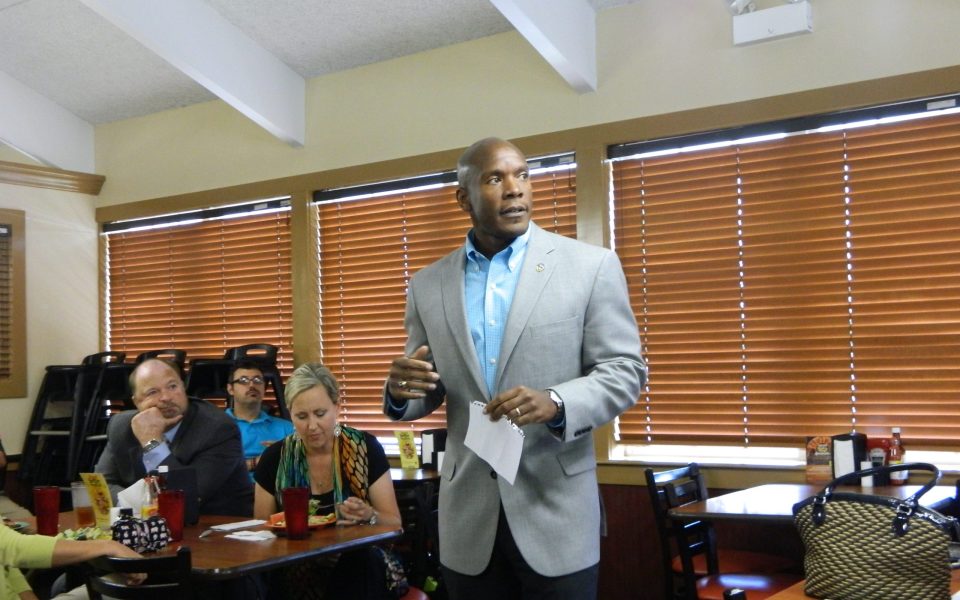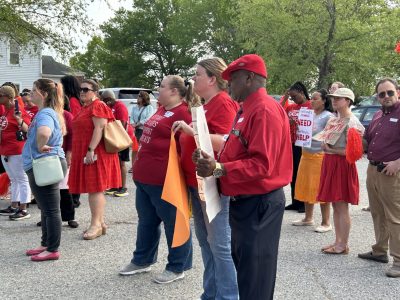Winston-Salem City Council members are discussing the possibility of commissioning a disparity study to address the city’s woeful level of contracting with minority- and women-owned businesses.
The city of Winston-Salem spent $7.9 million with minority owned firms in the 2016-2017 fiscal year, up from $6.3 million the previous year, according data presented to city council on Tuesday by the city’s Office of Business Inclusion and Advancement.
That’s only 3.3 percent of the $236.3 million spent in total by the city — a miniscule amount considering that non-whites make up 43.3 percent of the city’s population.
Women-owned businesses don’t fare much better, accounting for $12.6 million in city spending, or 5.3 percent, while women account for 53.1 percent of the population.
“From my mind, as an African-American minority woman, we don’t like to think about [how] there are groups being left out of the economic prosperity of America,” said Councilwoman DD Adams, who represents the North Ward. “But that is the way it’s been; it’s been that way for a long time.”
Adams expressed frustration that the city claims there are no qualified minority- and women-owned businesses in many contracting areas.
“We’ll go on the outside and we’ll allow others to bid outside of North Carolina for some of these contracts,” she said. “Minorities are minorities just like white people are white people. Why can’t we go on the outside and give a minority an opportunity to be a part of this, because ultimately they might hire some of our folk in the city and allow them to be trained and developed.”
The M/WBE Citizens Advisory Committee voted 7-1 in its November meeting to recommend that the city of Winston-Salem commission a disparity study — a tool Greensboro and other North Carolina cities have used to uncover evidence of discrimination in contracting, to gauge how many minority- and women-owned firms are qualified to handle different categories of contracting, and to identify and overcome barriers to participation.
Adams made a strong case for undertaking the study, which could cost anywhere from $275,000 to $350,000, according to staff. She argued that the city’s willingness to look at its contracting practices is a test of its commitment to combat poverty — a priority identified by Mayor Allen Joines.
“We gotta up our game, people,” Adams said. “If we’re gonna talk about the poverty initiative or the thought force or closing the gap, this is one of the main places we can start at closing the gap.” Adams reminded her colleagues that they passed up an opportunity to do a disparity study three or four years ago.
Adams said she wanted to make a motion to commission a disparity study, but Councilman Derwin Montgomery told her the item was only for informational purposes. City Manager Lee Garrity indicated staff would put the item on the agenda for the next finance committee meeting.
Councilman John Larson, who represents the South Ward, offered qualified support for the idea.
“I do think the timing is maybe right to get a new baseline in this city to understand — not just to create another study to put on the shelf — we need some baselines and data to figure out what is reasonable for us to do and what is not, what we can move quickly on and what may take longer,” he said.
Emma Allen, a State Farm insurance agent who chairs the M/WBE Citizens Advisory Committee, urged city council to take the plunge.
“There is a cost of doing the study certainly, but there’s also a cost of not doing the study,” she said. “So for people like me, for example, who moved here, we’re looking at cities that are invested in making sure we have a fair chance at success here. For boomers especially, we’re no longer corporate folks; we’re looking for retirement. We’re looking for places we’re likely to thrive with small businesses.”
Join the First Amendment Society, a membership that goes directly to funding TCB‘s newsroom.
We believe that reporting can save the world.
The TCB First Amendment Society recognizes the vital role of a free, unfettered press with a bundling of local experiences designed to build community, and unique engagements with our newsroom that will help you understand, and shape, local journalism’s critical role in uplifting the people in our cities.
All revenue goes directly into the newsroom as reporters’ salaries and freelance commissions.





Leave a Reply